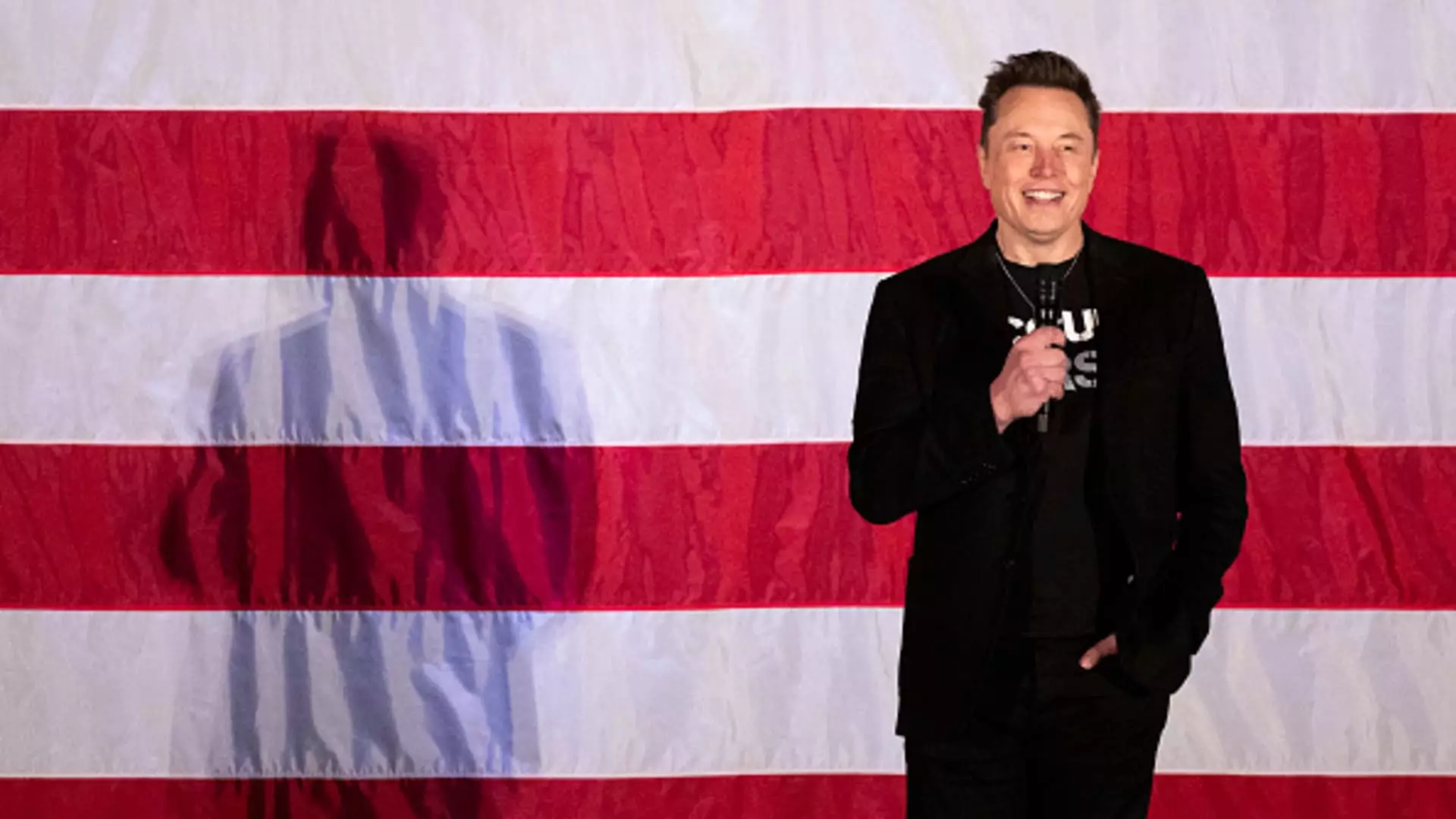The recent actions by Elon Musk and his political action committee, America PAC, have ignited significant legal and ethical debates surrounding their initiative to award a staggering $1 million to registered voters in crucial swing states. The Philadelphia District Attorney’s Office, led by DA Larry Krasner, has stepped forward with a lawsuit that characterizes this initiative as an “illegal lottery.” Raising questions about election integrity, voter manipulation, and legal compliance, the ramifications of this case may extend far beyond Philadelphia and into the realm of federal election laws.
The lawsuit posits that the million-dollar giveaway constitutes an unlawful lottery, which is strictly regulated under Pennsylvania law. Musk’s scheme allegedly involves soliciting personal identifying information from potential voters, luring them into providing sensitive data in exchange for a chance to win a substantial prize. Critics argue that this practice not only takes advantage of vulnerable voters but also undermines the fundamental principles of fair electoral processes.
Krasner’s assertion is bolstered by a prior warning from the U.S. Department of Justice, which indicated that America PAC’s sweepstakes could contravene federal election regulations. This aspect of the controversy underscores the potential ripple effects of the lawsuit, as it raises fundamental questions about the legality of using financial incentives to influence voter behavior, particularly in an election year fraught with intense political rivalry.
Musk’s backing of Republican nominee Donald Trump against Democratic nominee Kamala Harris puts him squarely in the political arena, amplifying the scrutiny surrounding his actions. This case not only touches on the legality of the lottery but also invites deeper discussions about the ethics of celebrity endorsements and their implications on voter participation. By intertwining financial incentives with political pledges, Musk and America PAC challenge traditional norms of candidate support and voter engagement.
Critics argue that such practices could lead to a form of coercion, where voters feel pressured to divulge personal information and pledge allegiance to a political cause for the prospect of winning money. This raises ethical considerations about informed consent and the protection of individual privacy, fundamental rights that are often overshadowed in heated political climates.
Public reaction to Musk’s campaign has been a mixed bag, with significant commentary emerging from various political quarters. President Joe Biden’s sardonic remark about wanting to be included in Musk’s giveaway encapsulates the broader sentiment that this initiative is fundamentally inappropriate. Biden’s response illustrates widespread skepticism about the motivations behind the program, suggesting that offering financial incentives to voters might trivialize the electoral process.
After previous investigations involving America PAC in states like North Carolina and Michigan, which highlighted questionable practices in collecting voter information, concerns about transparency and accountability are heightened. Skeptics wonder if this pattern of behavior indicates a reckless approach to electoral engagement that disregards voters’ rights.
The upcoming court hearing in Philadelphia stands to be pivotal, not only for Musk and America PAC but also for the integrity of elections nationwide. Should the court side with the DA’s office, it could set a strong precedent for addressing similar initiatives in the future, fortifying legal protections against any potential manipulation of electoral processes.
As the legal proceedings unfold, vigilance will be necessary to safeguard the principles of democracy and uphold the sanctity of voter participation. The situation underscores the continual need for robust regulatory frameworks in the ever-evolving landscape of political campaigning—particularly concerning the ethical use of financial incentives in electoral politics. Ultimately, the outcome of this lawsuit could herald a new chapter in the intersection of politics and commerce in the United States, prompting further dialogue on the balance between innovation in political campaigning and maintaining the integrity of the electoral system.



Leave a Reply